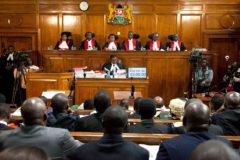Nigeria’s telecom regulator, Nigerian Communications Commission has rejected the recent increase in the prices of voice and data services by telecom operators in the country. This hike, a 10% tariff increase, is the latest effort by Nigerian telecom operators to pass rising costs to their customers.
Although the regulator had approved the tariff hike, it is calling for a reversal because its board didn’t approve of it. “Furthermore, even though the tariff adjustment was proposed and provisionally approved by the management, pending the final approval of the board of the commission, in the end, it did not have the approval of the board of the commission. As a result, it is reversed,” a statement dated October 12 from the NCC reads.
The regulator said that this decision was taken after a “critical and realistic review and analysis of the operational environment and the current business climate in Nigeria”.
Data prices in the country are relatively affordable, per the Alliance for Affordable Internet (A4AI) which posits that it costs the average Nigerian 1.66% of their monthly income to get 1GB of mobile data. But unchecked hikes threaten this affordability, and raise the chances of 1GB exceeding 2% of monthly income.
In a bid to cushion the effects of a steadily rising cost of living, worsened by 17-year high double-digit inflation and a currency on a downward spiral, telcos were forced to revise their data and voice call prices upward by at least 10%. Two of the biggest telecom operators in the country, Airtel and MTN, admitted to having reviewed their data prices upward.
The move, the regulator said, is to “protect the citizen” and “ensure justice to all stakeholders involved” and “as such, anything that will bring more hardship at this critical time will not be accepted.” The regulator noted that this was also the motivation behind the suspension of a proposed 5% tax on telcos last month.
Telcos, whose operation requires non-stop power supply, have to endure a 200% surge in diesel prices to keep the lights on in their base stations due to poor power supply.
The regulator promised to ensure that its processes and procedures for rate determination in the telecoms industry are transparent, efficient and carried out with industry-wide consultation.






















